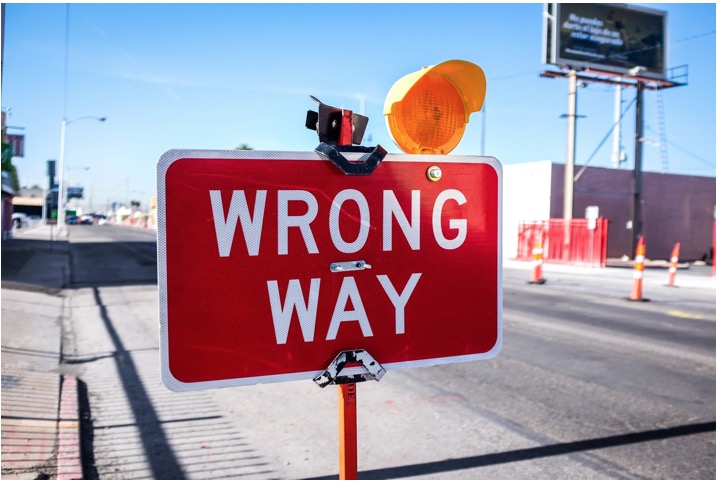GUEST COMMENTARY - Plagiarism is a huge issue in academic writing, and it can have serious consequences.
Students who plagiarize are often given low marks, or may even be expelled from school. So why is plagiarism such a big deal? And more importantly, how can you avoid it? In this blog post, we will discuss the definition of it, why it's wrong, and how to avoid it.
What is plagiarism and why is it wrong
Plagiarism is the act of presenting someone else's work as your own. It is considered wrong because it is a form of cheating. When you plagiarize, you are taking credit for someone else's hard work, which is not only unfair to the person who did the work, but it also denies you the opportunity to learn and grow from the experience.
Plus, it can lead to disciplinary action from your school or employer. In short, plagiarism is bad because it is dishonest and it can have serious consequences. So next time you're thinking about taking a shortcut, remember that it is not worth the risk.
You don't know how to avoid it?
There's no need to feel guilty if you're not sure how to avoid plagiarism - after all, it's a common mistake. Luckily, there are plenty of online resources that can help you out. One of the best is a free tool to check plagiarism. This will help you identify any instances of it in your work, so you can make changes accordingly. Plus, it's a great way to learn more about how to avoid plagiarism in the future. So why not give it a try? You might be surprised at how helpful it can be.
How to avoid plagiarism: Part II
- Cite, cite, cite! Any time you use a quote, statistic, or idea that you found in another source, be sure to give credit. Not only is it effective academic practice, but it will also help you avoid plagiarism.
- Use your own words. When in doubt, paraphrase rather than quoting directly. Not only will this help you avoid plagiarism, but it will also show your professors that you are engaging with the material.
- Know the rules. Before you start writing, make sure you understand the rules for citing sources in your assignment. That way, you can avoid accidental plagiarism.
- Keep track of your sources. As you do your research, be sure to keep track of the sources you consult. That way, you can easily find them again when it’s time to cite them.
- Don’t wait until the last minute. Rushing to finish an assignment can lead to careless mistakes, so try to start early and give yourself plenty of time to work.
- Proofread your work. Carefully proofreading your work can help you catch and correct any errors before they become a problem.
- Ask for help. If you’re unsure about how to cite a source or whether you may be plagiarizing, don’t hesitate to ask your professor or a librarian for help.
The consequences of plagiarism
Here are four potential repercussions of plagiarism that every student should be aware of:
- Plagiarism can lead to a failing grade. If you're caught plagiarizing on an assignment, chances are that you'll receive a failing grade for the entire class. In some cases, you may even be expelled from school.
- It can damage your reputation. Once you've been caught plagiarizing, it can be hard to shake the reputation of being a cheater. Your classmates and teachers may not trust you, and it may be difficult to get into a great college or find a job after graduation.
- It is illegal. In many countries, plagiarism is considered a form of theft and is punishable by law. If you're caught plagiarizing, you could face fines or even jail time.
- You won't learn anything if you plagiarize. One of the main reasons why schools penalize students for plagiarism is because it prevents them from learning. When you copy someone else's work, you're not giving yourself a chance to understand the material and learn from it. Not to mention, you're missing out on the opportunity to develop your own unique voice and ideas.
Examples of plagiarism
- Copying and pasting a section of text from an online article without giving credit to the original author.
- Downloading a paper from a homework help website and turning it in as your own work.
- Incorporating ideas from a book or article into your own paper without giving credit to the source.
Resources on avoiding plagiarism
The best way is to simply give credit where credit is due. Whenever you use someone else's ideas, words, or work, be sure to cite them accordingly. This can be done in-text or in a bibliography at the end of your paper. If you're not sure how to cite something, there are plenty of resources available to help you out.
The library is a great place to start, or you can search the internet for guidance. There are also software programs like EndNote and Zotero that can help you organize your citations.
Conclusion
Plagiarism is not only unethical, but it can also have serious consequences. By understanding why it’s wrong and taking steps to avoid it, you can ensure that your work is original and honest. Remember to use your own words, know the rules for citing sources, keep track of your sources, proofread your work, and ask for help if needed. Good luck!
(Mary Cardoza is a freelance writer and recent graduate and a contributor to CityWatchLA. She enjoys exploring different cities, trying new foods, and cuddling with her dog, Angie.)









